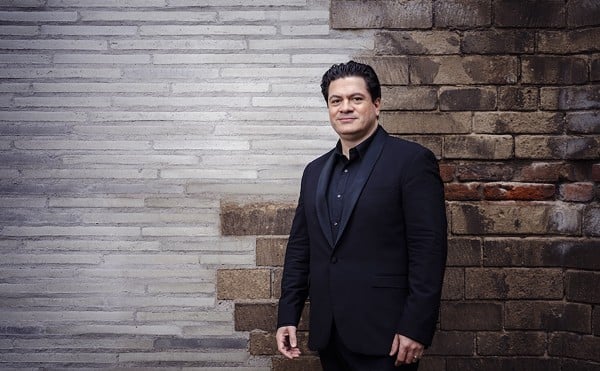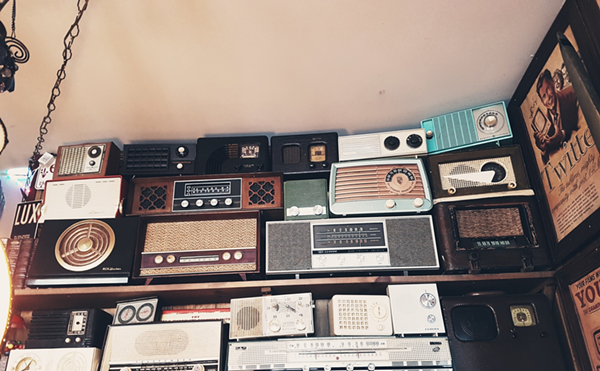On his first two full-length releases and a handful of CD singles and live recordings, Dan Snaith had established himself as a rather well-informed and astute purveyor of Psychedelic Pop as he transformed it into his own unique brand of one-man-laptop bravado. Snaith’s releases are located in record store bins and on that interweb thingie under “C” for Caribou (he had earlier releases under his original appellation, Manitoba, but a threatened lawsuit by the Dictators’ frontman forced the change).
But when it came time to begin work on new material to follow up 2008’s Andorra, the only certainty was that Snaith didn’t want to re-create that same sound.
“Andorra was kind of the logical conclusion of the albums preceding it, and I felt like I had done everything I could do with those kind of ideas, so I wanted to do something that was a radical departure,” Snaith says about the album that eventually became Swim, his third Caribou long-player, released back in April. “A lot of the tracks on this record were influenced by Dance music. I was DJing more, and playing the songs in DJ sets, seeing how they sounded over PAs and seeing how people reacted to them. That’s not something that I’d ever done before.”
The rural Canada native’s relocation to London put him in the midst of a thriving UK club scene and exposed him to a broad variety of rhythmic styles and executions. Although Snaith’s methodology remained largely the same — working at home alone on musical ideas — the outcome was ass-shakingly different.
“I didn’t want to become stuck in a corner and be thought of as the guy who’s nostalgic about the ’60s. Obviously, I love that music and Psychedelic music is a big part of my listening taste, but not by any means is it the only music I’m interested in,” Snaith says. “I wanted to move on and do something that would surprise people and challenge their expectation as to what it would sound like.”
Swim wound up exactly as Snaith intended, a significant shift away from the Psych Pop swirl of his previous catalog in favor of the influence of London’s raging Dance atmosphere. And even though Snaith steered Caribou away from a path that has largely earned him critical acclaim and a substantial fan base, response to Swim’s Dancedelica has been overwhelmingly positive.
“It’s been fantastic, better than any record I’ve put out, for sure, which really surprised me,” Snaith says of Swim’s reception. “It’s kind of a weird, eccentric record, and more difficult. I imagined that it might alienate people who like Andorra, or some of those people anyway, but it’s completely the opposite actually. We’re playing to more people than we’ve every played to, and the reaction to this album seems better than any of the previous ones that I’ve released.”
Snaith grew up in Dundas, Ontario, a self-described “small hippie town,” the son of world-renowned mathematician Victor Snaith. Bucking the trends of his Grunge-and-Noise-listening peer group, Snaith gravitated to bombastic and ambitious Rock bands like Yes, Emerson Lake & Palmer and Pink Floyd, which informed his budding piano and instrumental skills.
“My friends listened more to Nirvana and Sonic Youth and Dinosaur Jr., and their constant ridicule slowly wore me down,” Snaith says, laughing. “Also I started getting into Electronic music. One of our friends always had his finger on the pulse of Electronic music. A couple things subverted all my ways of valuing music; I was into the most complicated, overblown music, and this was the most simple, repetitive music, so I liked it immediately, but also from the point of view that I was aware that, like, a Richie Hawtin record or whatever was made for a couple hundred dollars worth of used equipment that he got at garage sales or pawn shops and recorded at home and (it only) cost a few hundred dollars to make. Electronic music was a way in for me because it was so accessible to start recording. That was about the time that I got a basic synthesizer and started recording stuff.”
Although Snaith has created his Electronic/Psych/Dance Pop on his own, he doesn’t present them that way in the live context. Rather than rely on self-recorded backing tracks to play along to/react against on stage, Snaith has typically taken a band out with him on tour, which at present consists of multi-instrumentalists Brad Weber, Ryan Smith and Enon frontman John Schmersal, and a stage set-up that includes two drum kits, guitars, a bass, keyboards and a number of drum pads and pedals that activate different sounds.
One of the interesting aspects of taking Swim on the road has been the difference between the old and new Caribou material and the way that Snaith and the band have synthesized the two directions.
“When we learned some of the old songs, it was with that in mind, to make them fit without doing too much of a crude hatchet job on them,” says Snaith. “It was picking out songs that seemed to suit the temperament of Swim or changing the instrumentation to fit in the new set. It looks like we’re a band up there, but everything is very interconnected to one another so that we can affect what each other is playing. We’ll hit a button that triggers a loop of a drum machine, but the most important thing for us was to make it flexible and spontaneous so we didn’t want a backing track holding us in place. We wanted to interpret it as we go along.”
CARIBOU plays the MidPoint Music Festival Friday under the Topic Design Tent at Grammer's. The 7:30 p.m. bill includes local acts Enlou and The Seedy Seeds. Get show and venue details here. Get all the MidPoint details here.





